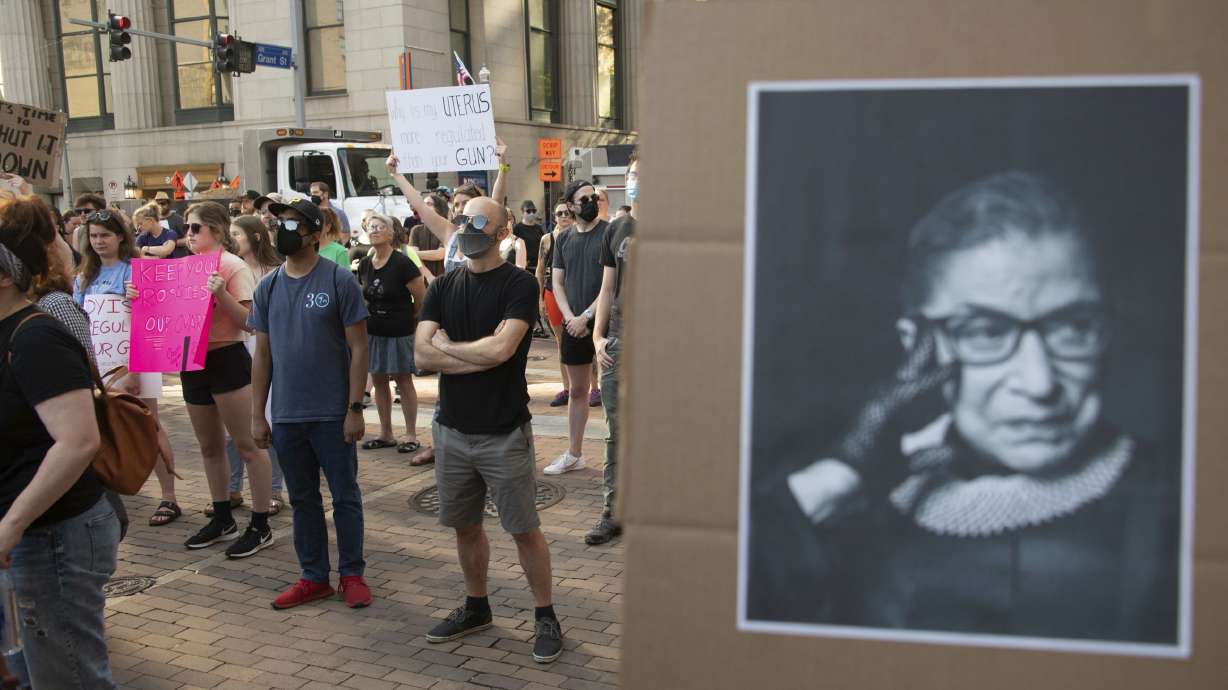Estimated read time: 2-3 minutes
This archived news story is available only for your personal, non-commercial use. Information in the story may be outdated or superseded by additional information. Reading or replaying the story in its archived form does not constitute a republication of the story.
SALT LAKE CITY — Since the death of Supreme Court Justice Ruth Bader Ginsburg and the recent overturning of Roe v. Wade, the conversation about abortion has escalated.
Though Ginsburg is no longer alive to share her thoughts on the recent decision, her words and actions during her time on the court have sparked national debate regarding how the original decision has affected the process of government and women's rights.
Though many want to focus on her approval of women being able to choose an abortion, another factor in the conversation is her thoughts on ensuring an equal balance of power between the federal and state governments. Ginsburg shared during an address at the Chicago Law School in 2013 that she would've preferred for abortion to be brought in gradually under the right to equal protection rather than under the right to privacy.
"My criticism of Roe is that it seemed to have stopped the momentum on the side of change," Ginsburg said.
Ginsburg was an advocate for abortion but also represented women who have elected to not have abortions and maintain their careers.
Before becoming a justice, Ginsburg represented Air Force Capt. Susan Struck who sued the secretary of defense after being told that she would have to abort her baby or resign in 1971. The Supreme Court agreed to hear the case but never did after the Air Force decided it would allow Struck to keep her child and her position.
"I wish that would've been the first case. I think the court would've better understood that this is about women's choice," Ginsburg said.
The court decided Roe v. Wade soon after.
Though it is common knowledge that Ginsburg supported women choosing abortion, a lesser known critique of hers was that she considered Roe to be a physician-centered decision rather than woman-centered.
"Roe isn't really about the woman's choice, is it? It's about the doctor's freedom to practice," Ginsburg said in 2013. "It wasn't woman-centered, it was physician-centered."
With nine male justices ruling on Roe v. Wade, she encouraged women at the Chicago Law School to use their education to step up and help make decisions that will give all women greater opportunities in society.
"Now all the doors are open, but we haven't come all the way," Ginsburg said.








